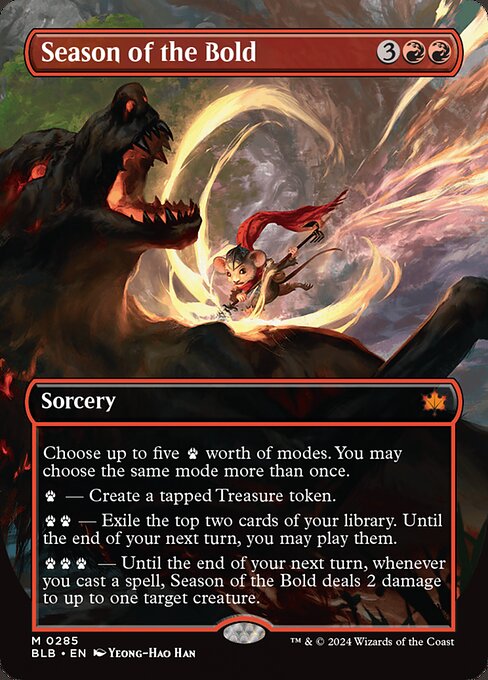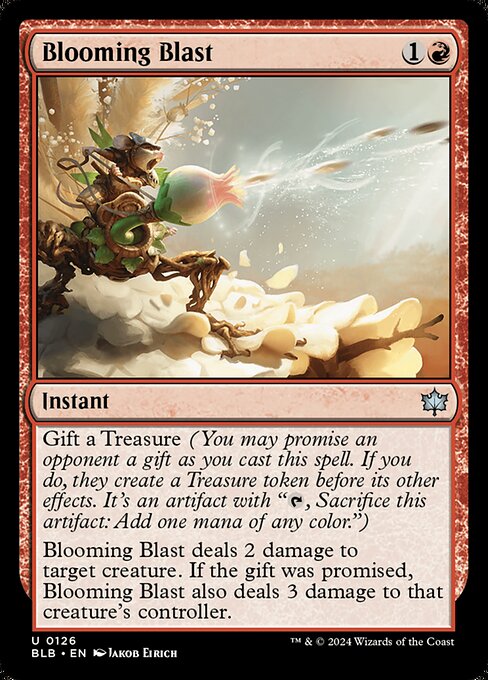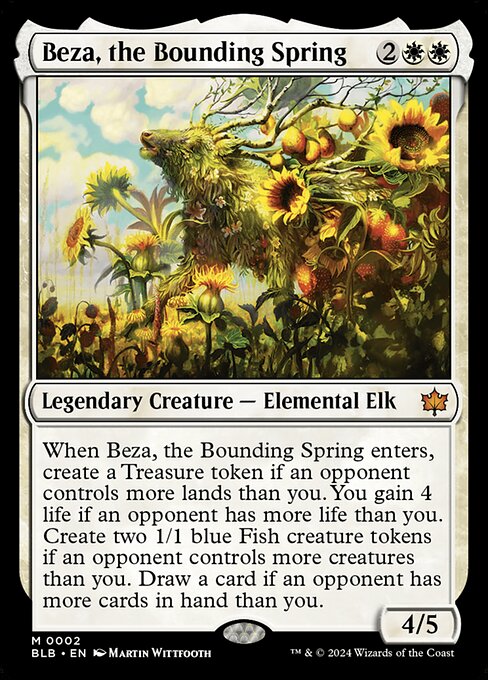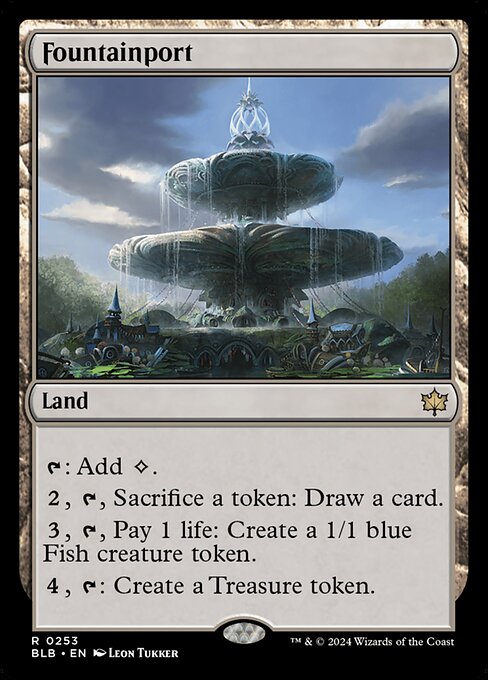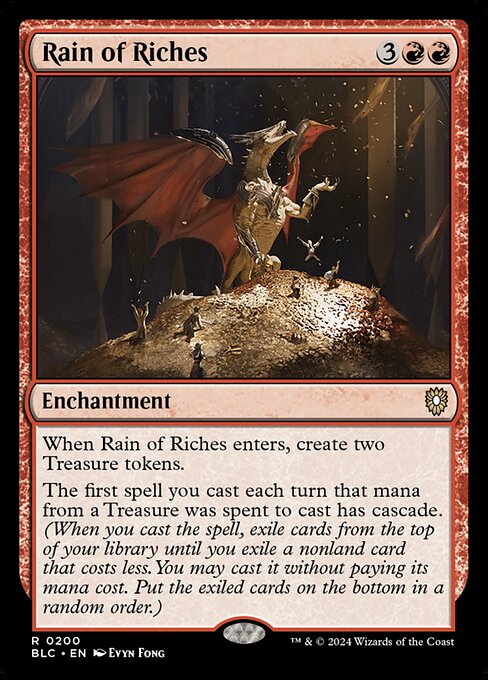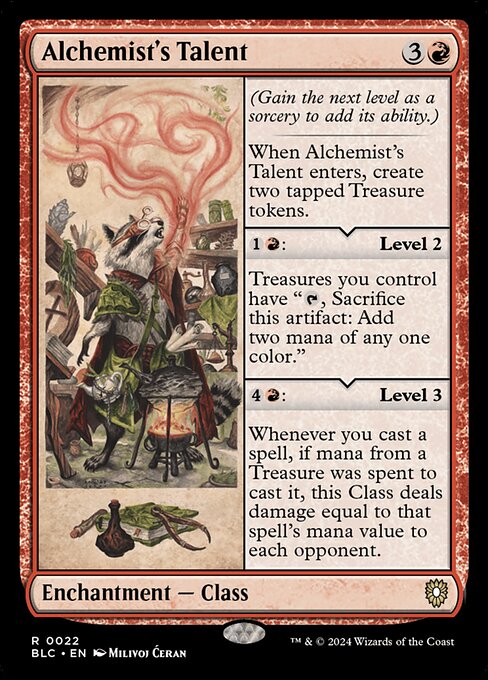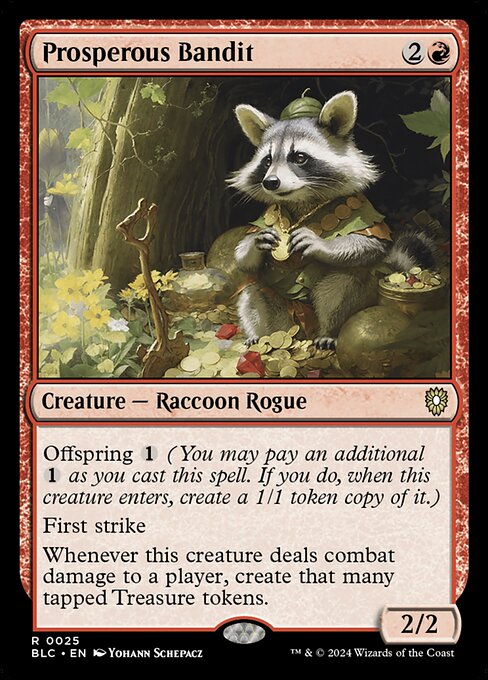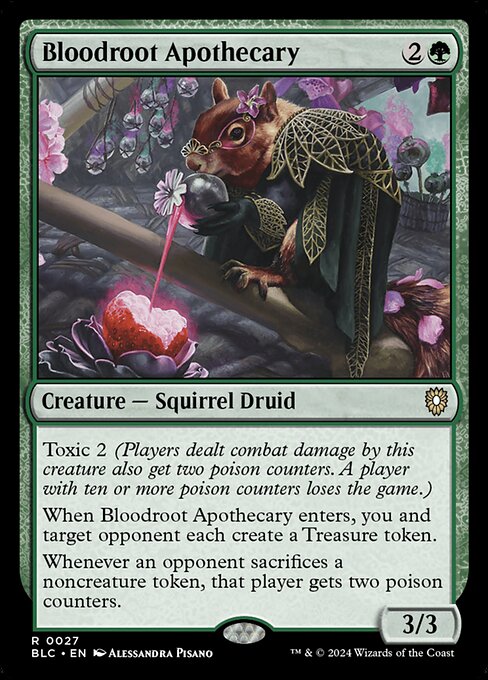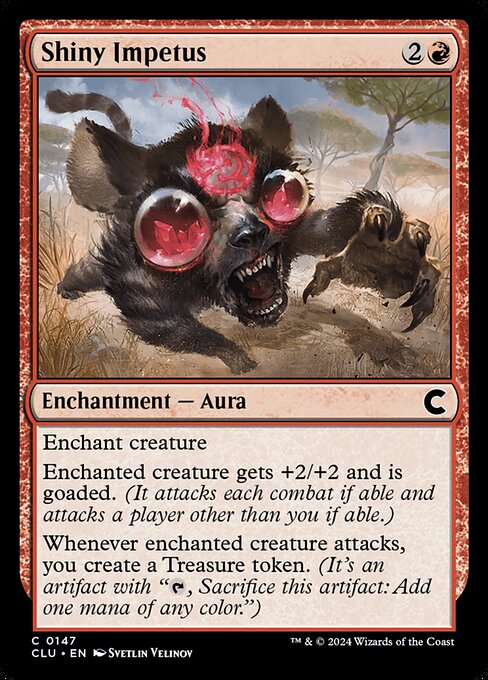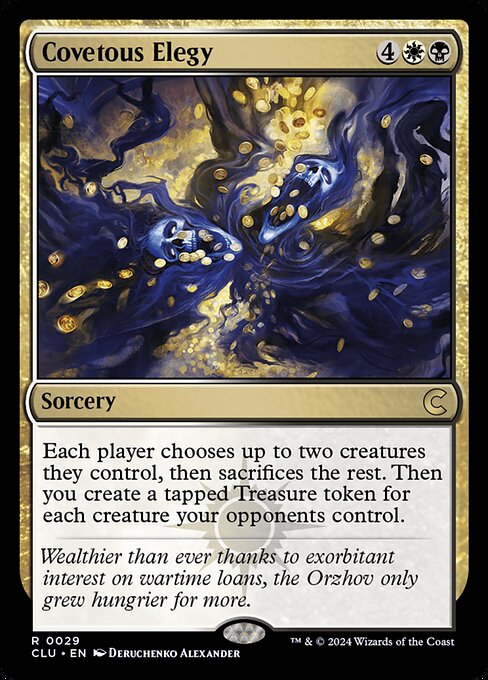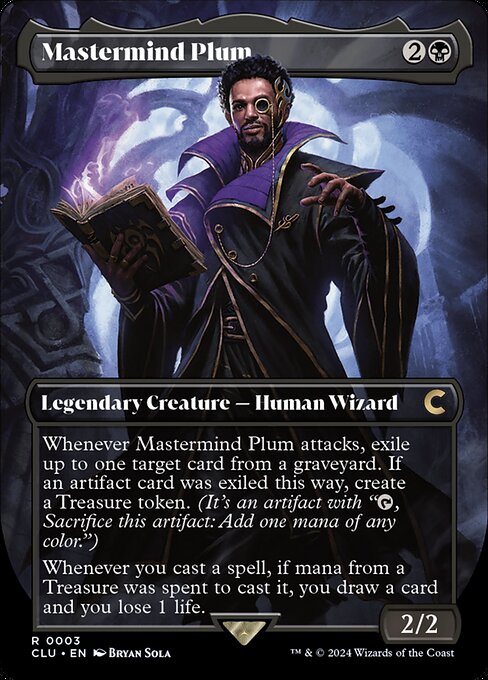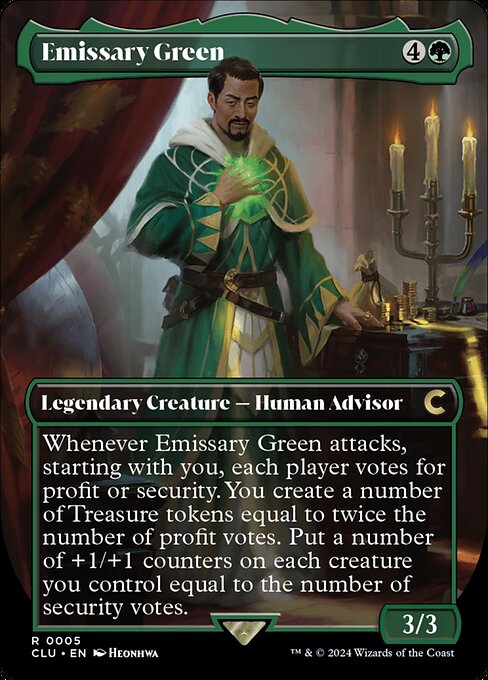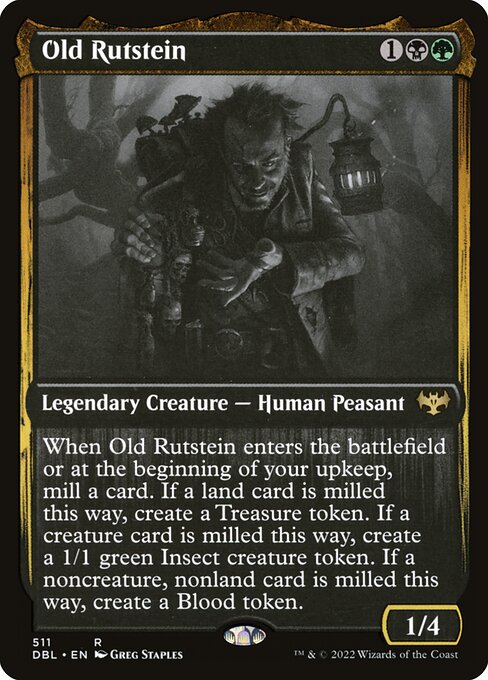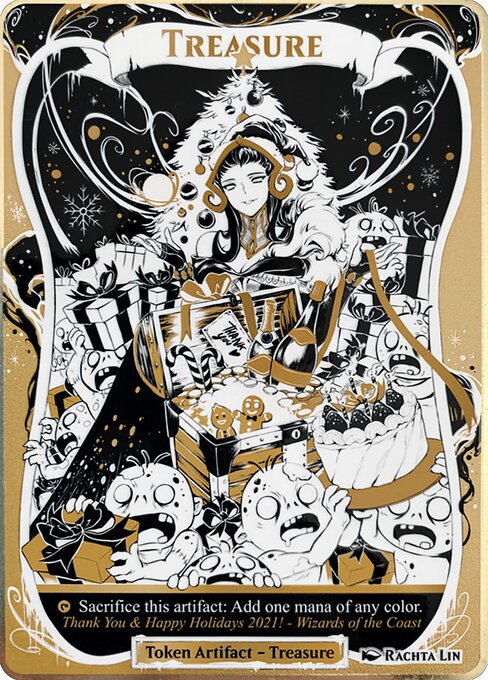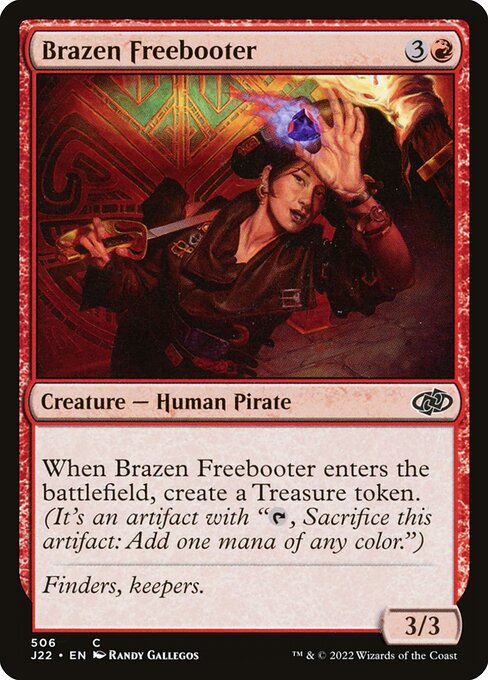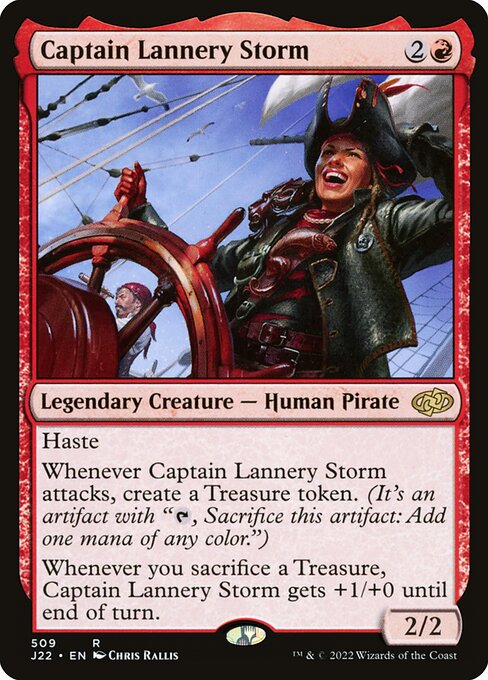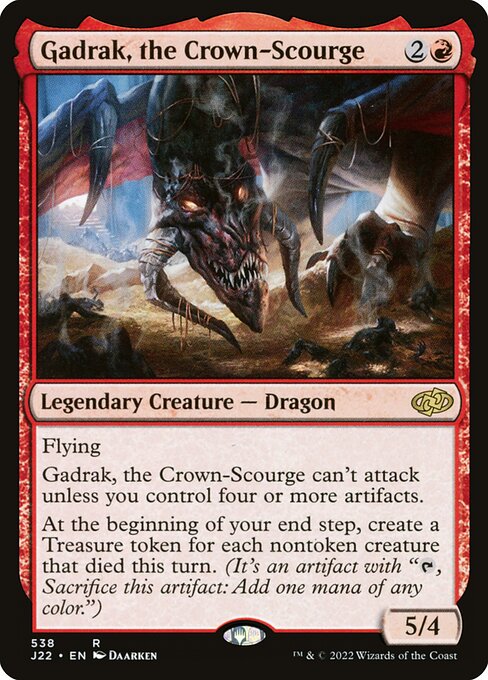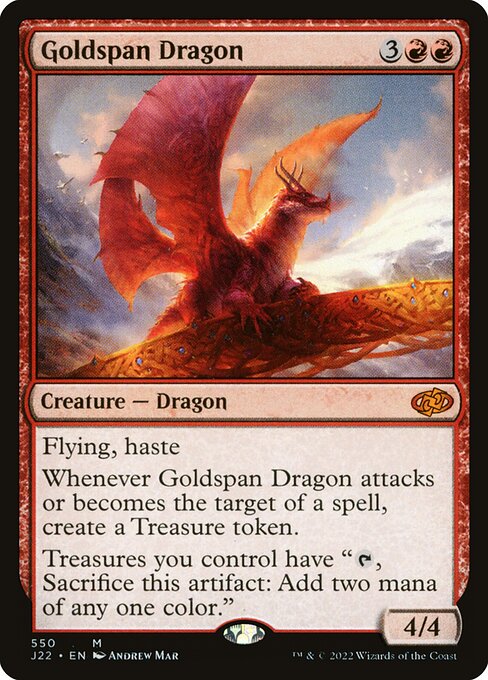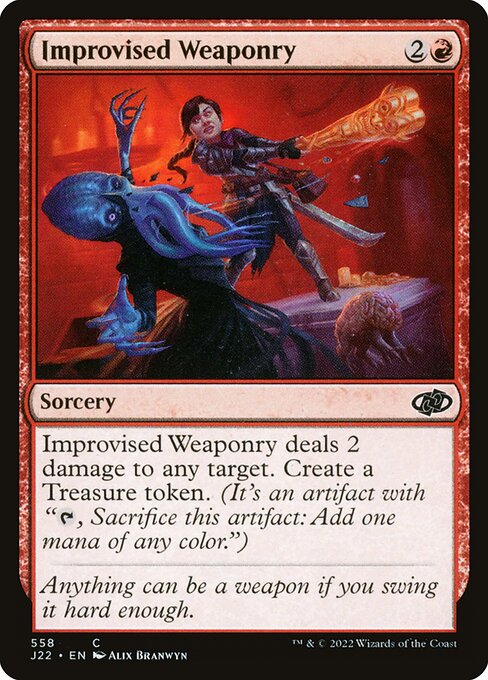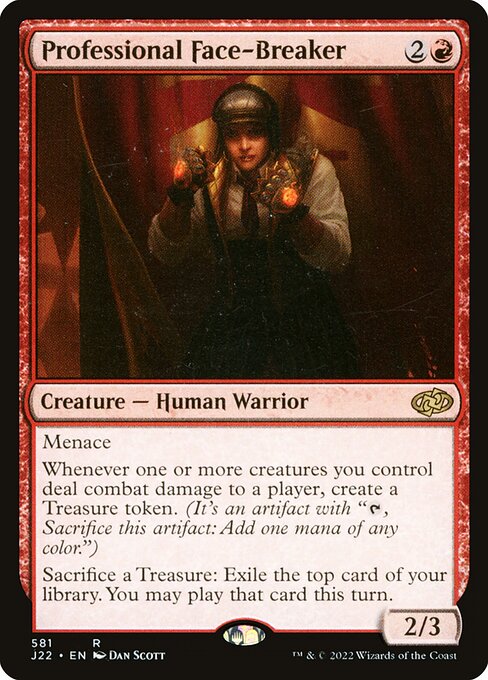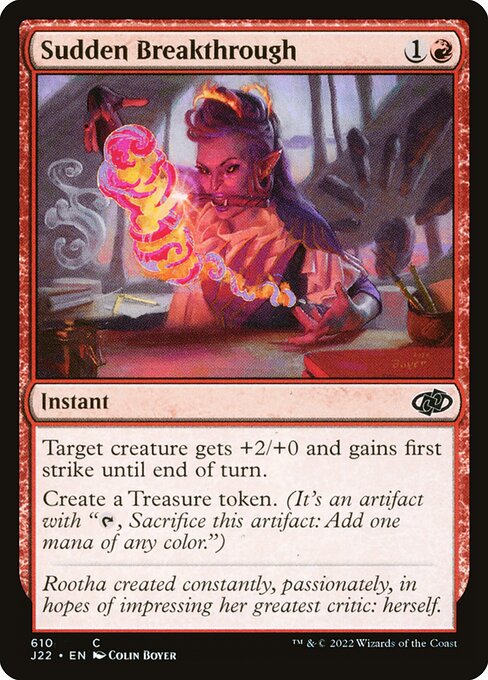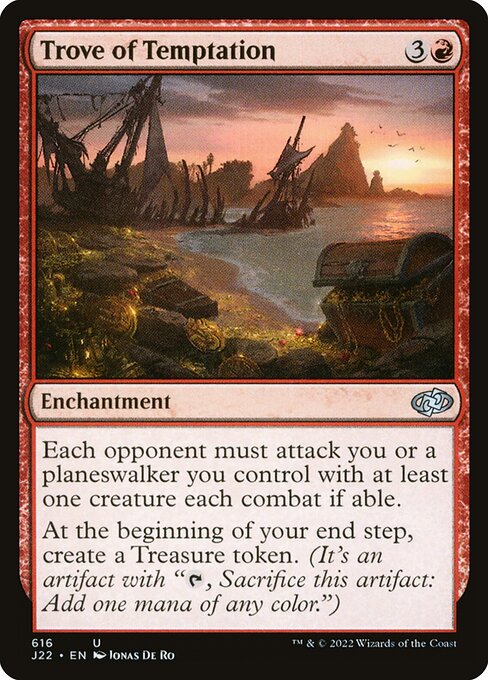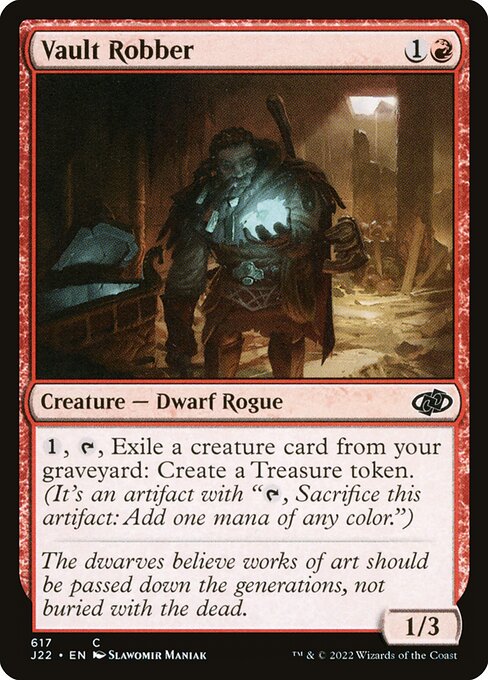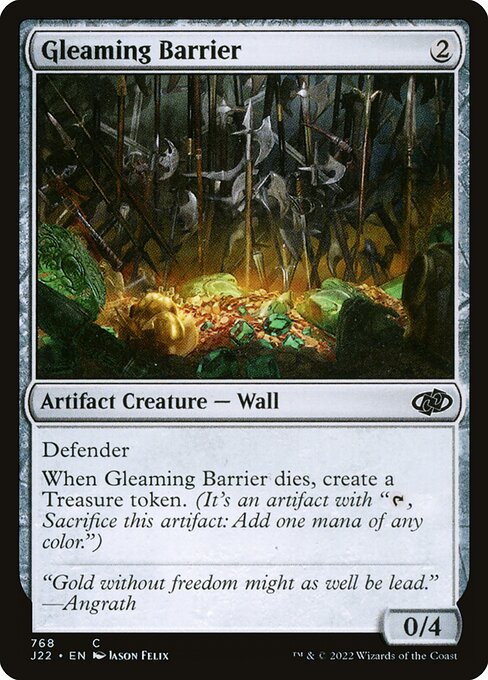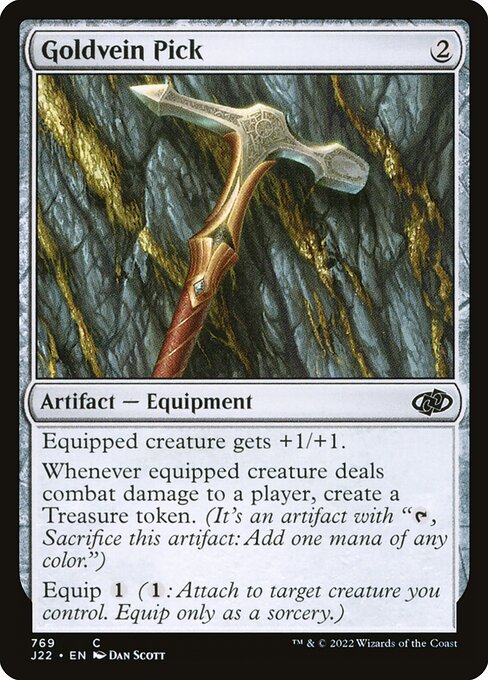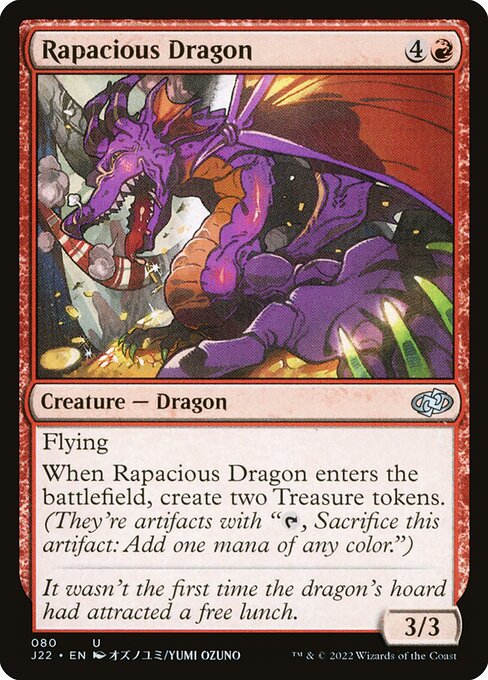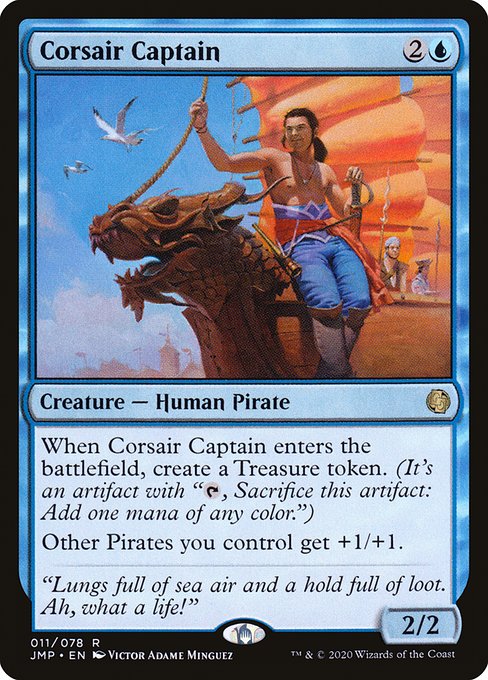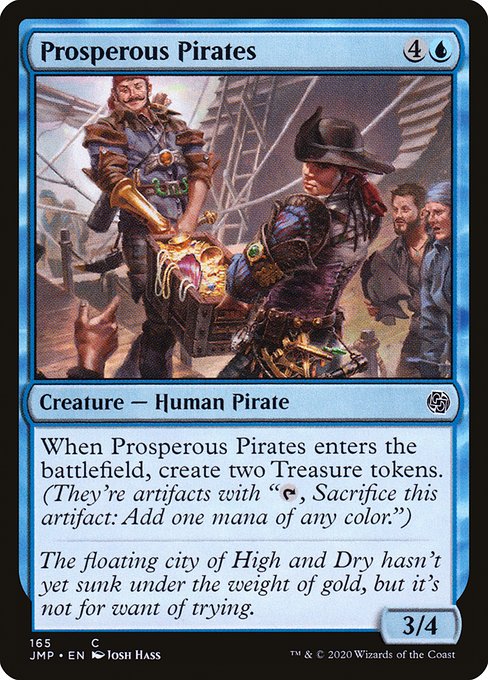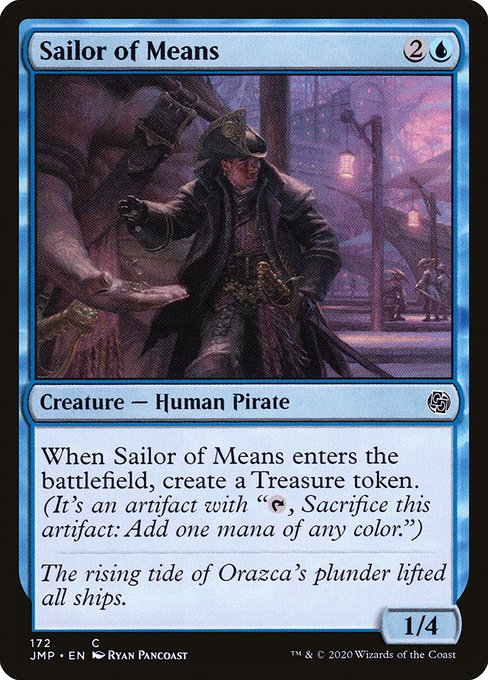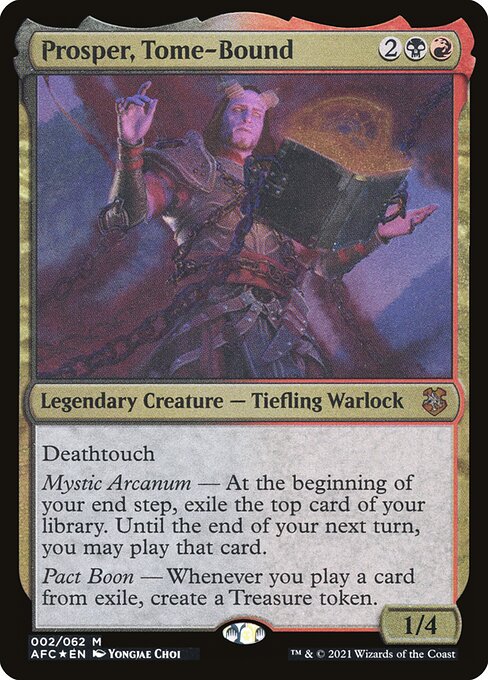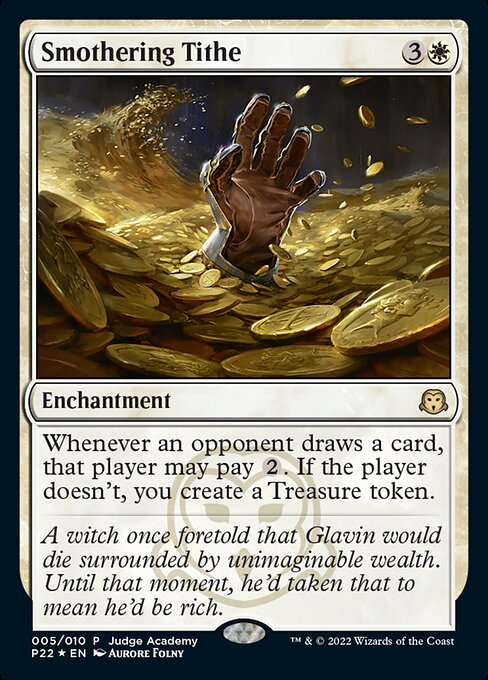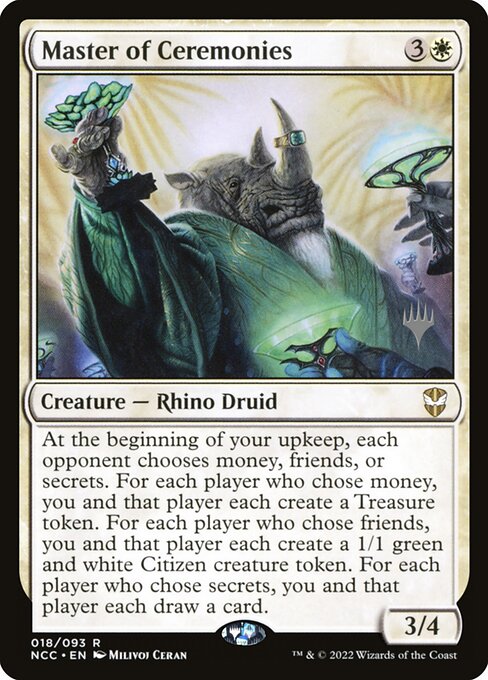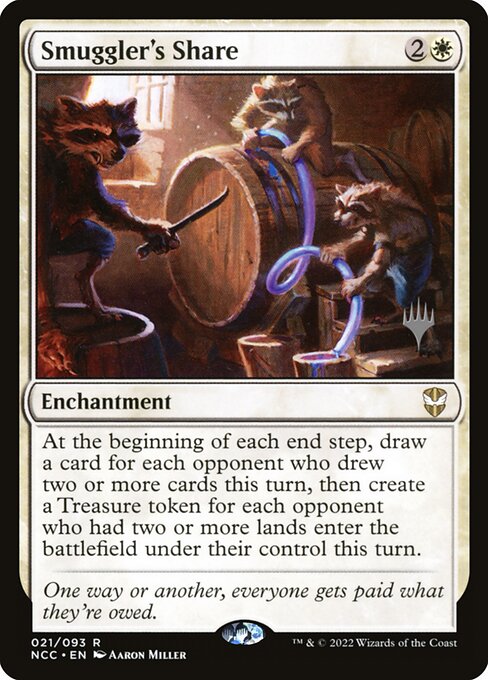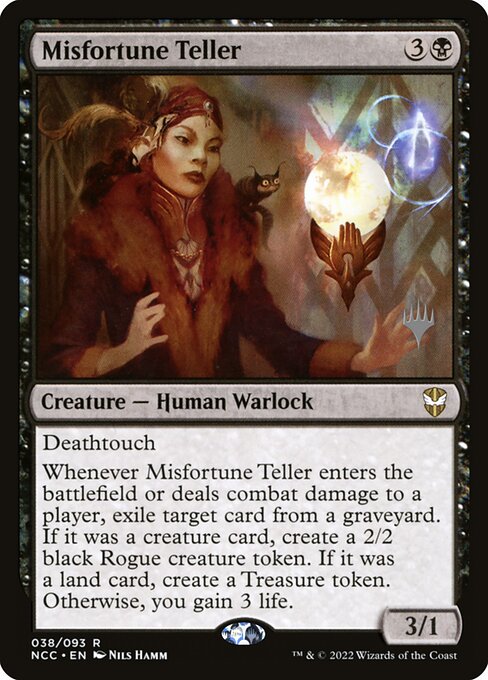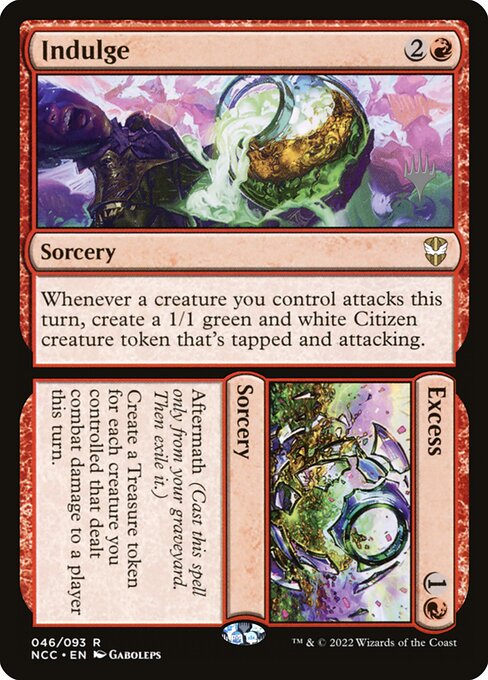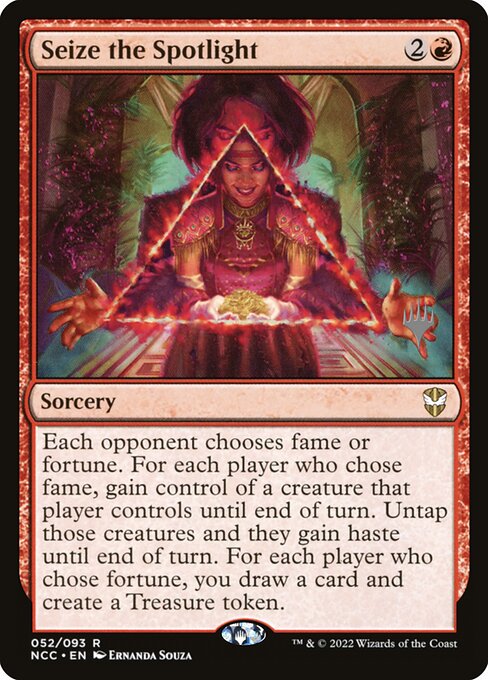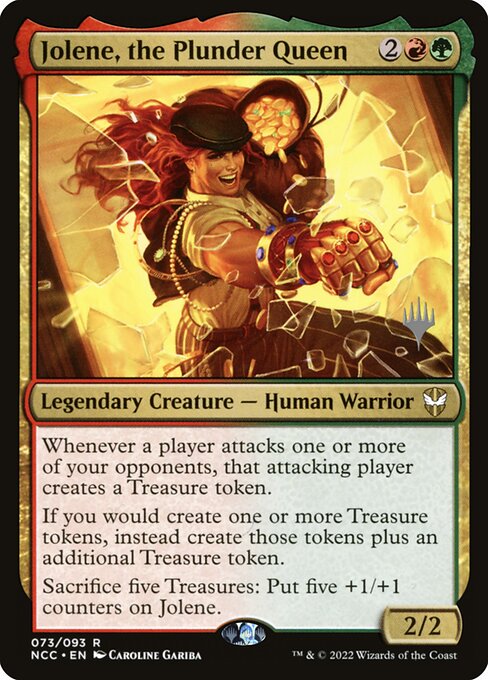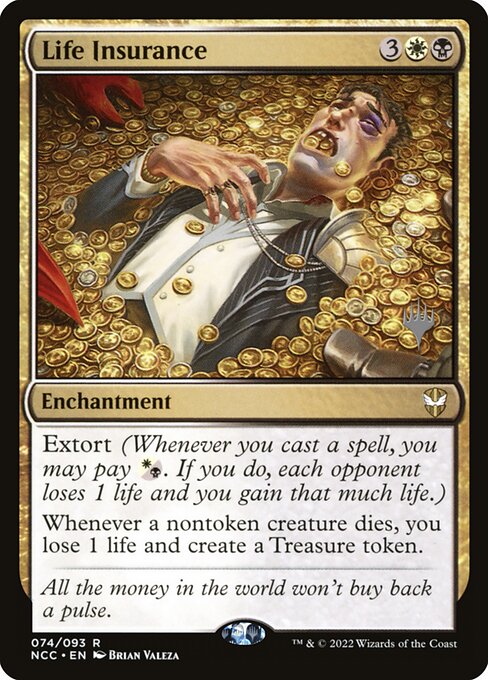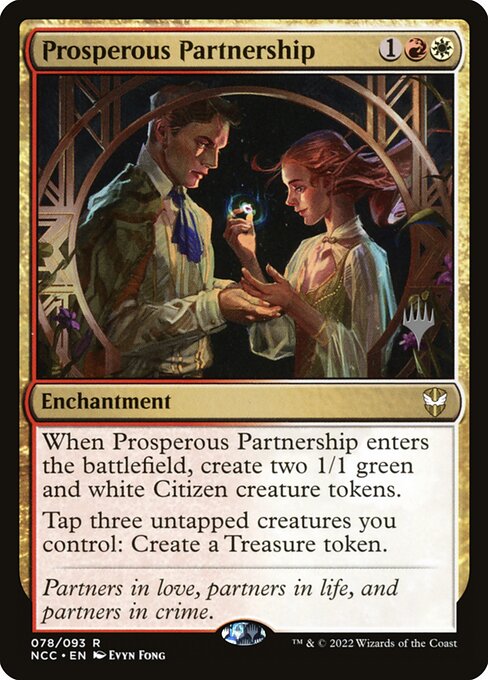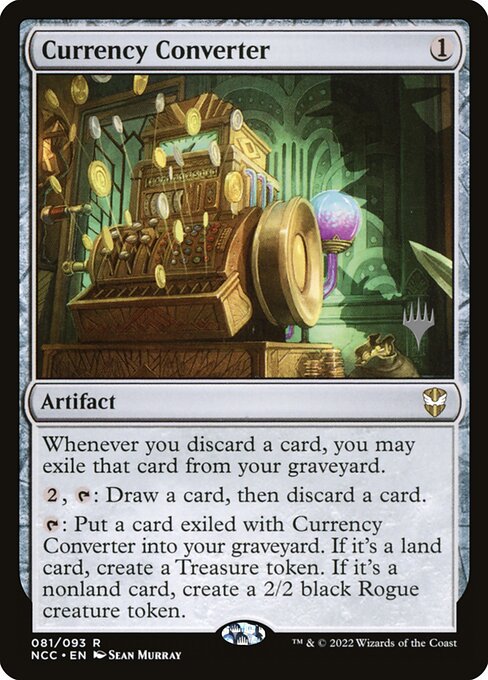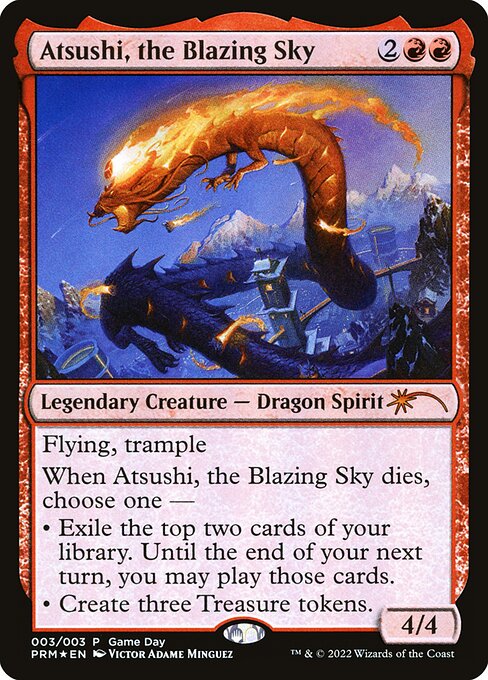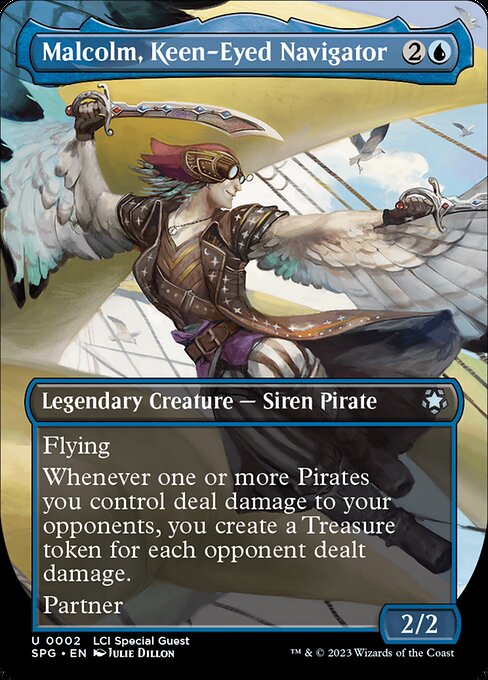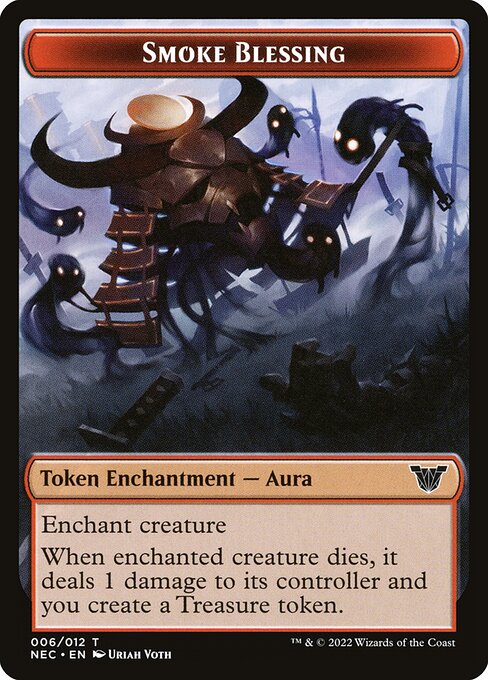Season of the Bold
Sorcery
Sorcery Choose up to five {J} worth of modes. You may choose the same mode more than once.
{J} — Create a tapped Treasure token.
{J}{J} — Exile the top two cards of your library. Until the end of your next turn, you may play them.
{J}{J}{J} — Until the end of your next turn, whenever you cast a spell, Season of the Bold deals 2 damage to up to one target creature.
{J} — Create a tapped Treasure token.
{J}{J} — Exile the top two cards of your library. Until the end of your next turn, you may play them.
{J}{J}{J} — Until the end of your next turn, whenever you cast a spell, Season of the Bold deals 2 damage to up to one target creature.
standard
future
historic
gladiator
pioneer
explorer
modern
legacy
pauper
vintage
penny
commander
brawl
alchemy
paupercommander
duel
oldschool
premodern
Rulings
If all targets for the chosen modes become illegal before the Season resolves, the spell won’t resolve and none of its effects will happen. If at least one target is still legal, the spell will resolve but will have no effect on any illegal targets.
The delayed triggered ability created by the third mode of Season of the Bold resolves before the spell that caused it to trigger. It resolves even if that spell is countered.
You don’t choose a target for the last mode when Season of the Bold resolves. Instead, until the end of your next turn, a delayed triggered ability goes on the stack whenever you cast a spell. You choose a target for that ability when it goes on the stack. Each player may respond to that ability as normal.
No player can cast spells or activate abilities in between the modes of a resolving spell.
You pay all costs and follow all timing rules for cards played with the permission granted by the second mode. For example, if one of the exiled cards is a land card, you may play it only during your main phase while the stack is empty.
You don’t have to choose modes that add up to exactly five pawprints. For example, you could choose the two pawprint mode twice and leave it at that. You could even choose no modes at all. You probably shouldn’t, but you could.
You choose the modes as you cast the spell. Once modes are chosen, they can’t be changed.
No matter which combination of modes you choose, you always follow the instructions of a Season in the order they are written. If the same mode is chosen more than once, you choose their relative order as you cast the spell.
If a Season is copied, the effect that creates the copy will usually allow you to choose new targets, but you can’t choose new modes.
The pawprint symbol does not represent a cost, mana, counters, or any kind of persistent resource. You can’t “save up” pawprint symbols from one Season spell to use on a future one, mostly because there isn’t anything concrete to save up. They’re just pawprints.
If a mode requires a target, you can select that mode only if there’s a legal target available. Ignore the targeting requirements for modes you don’t choose. Each time you select that mode, you can choose a different target, or you can choose the same target.
The delayed triggered ability created by the third mode of Season of the Bold resolves before the spell that caused it to trigger. It resolves even if that spell is countered.
You don’t choose a target for the last mode when Season of the Bold resolves. Instead, until the end of your next turn, a delayed triggered ability goes on the stack whenever you cast a spell. You choose a target for that ability when it goes on the stack. Each player may respond to that ability as normal.
No player can cast spells or activate abilities in between the modes of a resolving spell.
You pay all costs and follow all timing rules for cards played with the permission granted by the second mode. For example, if one of the exiled cards is a land card, you may play it only during your main phase while the stack is empty.
You don’t have to choose modes that add up to exactly five pawprints. For example, you could choose the two pawprint mode twice and leave it at that. You could even choose no modes at all. You probably shouldn’t, but you could.
You choose the modes as you cast the spell. Once modes are chosen, they can’t be changed.
No matter which combination of modes you choose, you always follow the instructions of a Season in the order they are written. If the same mode is chosen more than once, you choose their relative order as you cast the spell.
If a Season is copied, the effect that creates the copy will usually allow you to choose new targets, but you can’t choose new modes.
The pawprint symbol does not represent a cost, mana, counters, or any kind of persistent resource. You can’t “save up” pawprint symbols from one Season spell to use on a future one, mostly because there isn’t anything concrete to save up. They’re just pawprints.
If a mode requires a target, you can select that mode only if there’s a legal target available. Ignore the targeting requirements for modes you don’t choose. Each time you select that mode, you can choose a different target, or you can choose the same target.
Rulings
If all targets for the chosen modes become illegal before the Season resolves, the spell won’t resolve and none of its effects will happen. If at least one target is still legal, the spell will resolve but will have no effect on any illegal targets.
The delayed triggered ability created by the third mode of Season of the Bold resolves before the spell that caused it to trigger. It resolves even if that spell is countered.
You don’t choose a target for the last mode when Season of the Bold resolves. Instead, until the end of your next turn, a delayed triggered ability goes on the stack whenever you cast a spell. You choose a target for that ability when it goes on the stack. Each player may respond to that ability as normal.
No player can cast spells or activate abilities in between the modes of a resolving spell.
You pay all costs and follow all timing rules for cards played with the permission granted by the second mode. For example, if one of the exiled cards is a land card, you may play it only during your main phase while the stack is empty.
You don’t have to choose modes that add up to exactly five pawprints. For example, you could choose the two pawprint mode twice and leave it at that. You could even choose no modes at all. You probably shouldn’t, but you could.
You choose the modes as you cast the spell. Once modes are chosen, they can’t be changed.
No matter which combination of modes you choose, you always follow the instructions of a Season in the order they are written. If the same mode is chosen more than once, you choose their relative order as you cast the spell.
If a Season is copied, the effect that creates the copy will usually allow you to choose new targets, but you can’t choose new modes.
The pawprint symbol does not represent a cost, mana, counters, or any kind of persistent resource. You can’t “save up” pawprint symbols from one Season spell to use on a future one, mostly because there isn’t anything concrete to save up. They’re just pawprints.
If a mode requires a target, you can select that mode only if there’s a legal target available. Ignore the targeting requirements for modes you don’t choose. Each time you select that mode, you can choose a different target, or you can choose the same target.
The delayed triggered ability created by the third mode of Season of the Bold resolves before the spell that caused it to trigger. It resolves even if that spell is countered.
You don’t choose a target for the last mode when Season of the Bold resolves. Instead, until the end of your next turn, a delayed triggered ability goes on the stack whenever you cast a spell. You choose a target for that ability when it goes on the stack. Each player may respond to that ability as normal.
No player can cast spells or activate abilities in between the modes of a resolving spell.
You pay all costs and follow all timing rules for cards played with the permission granted by the second mode. For example, if one of the exiled cards is a land card, you may play it only during your main phase while the stack is empty.
You don’t have to choose modes that add up to exactly five pawprints. For example, you could choose the two pawprint mode twice and leave it at that. You could even choose no modes at all. You probably shouldn’t, but you could.
You choose the modes as you cast the spell. Once modes are chosen, they can’t be changed.
No matter which combination of modes you choose, you always follow the instructions of a Season in the order they are written. If the same mode is chosen more than once, you choose their relative order as you cast the spell.
If a Season is copied, the effect that creates the copy will usually allow you to choose new targets, but you can’t choose new modes.
The pawprint symbol does not represent a cost, mana, counters, or any kind of persistent resource. You can’t “save up” pawprint symbols from one Season spell to use on a future one, mostly because there isn’t anything concrete to save up. They’re just pawprints.
If a mode requires a target, you can select that mode only if there’s a legal target available. Ignore the targeting requirements for modes you don’t choose. Each time you select that mode, you can choose a different target, or you can choose the same target.
Your collection? Your decks?
Want to manage your collection and/or create decks?


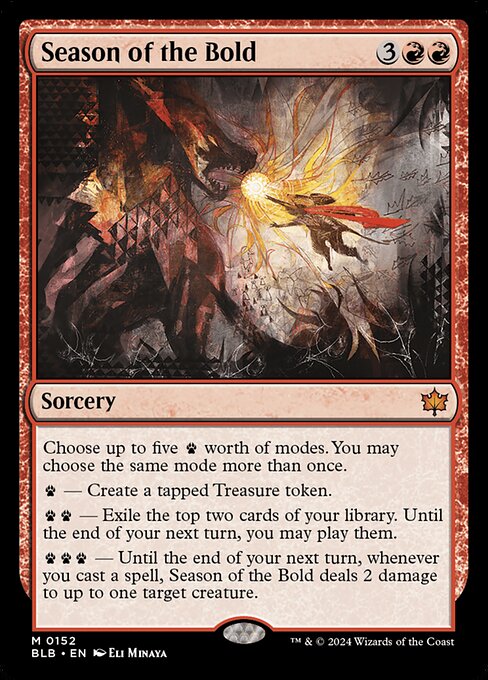
 0
0
 1.09€
1.09€
